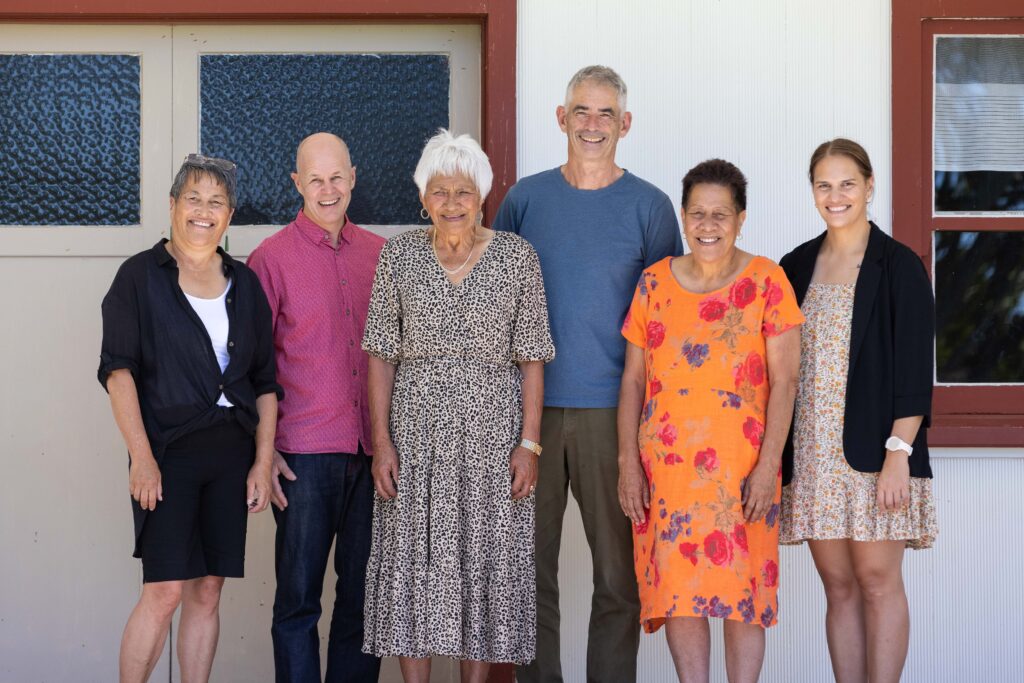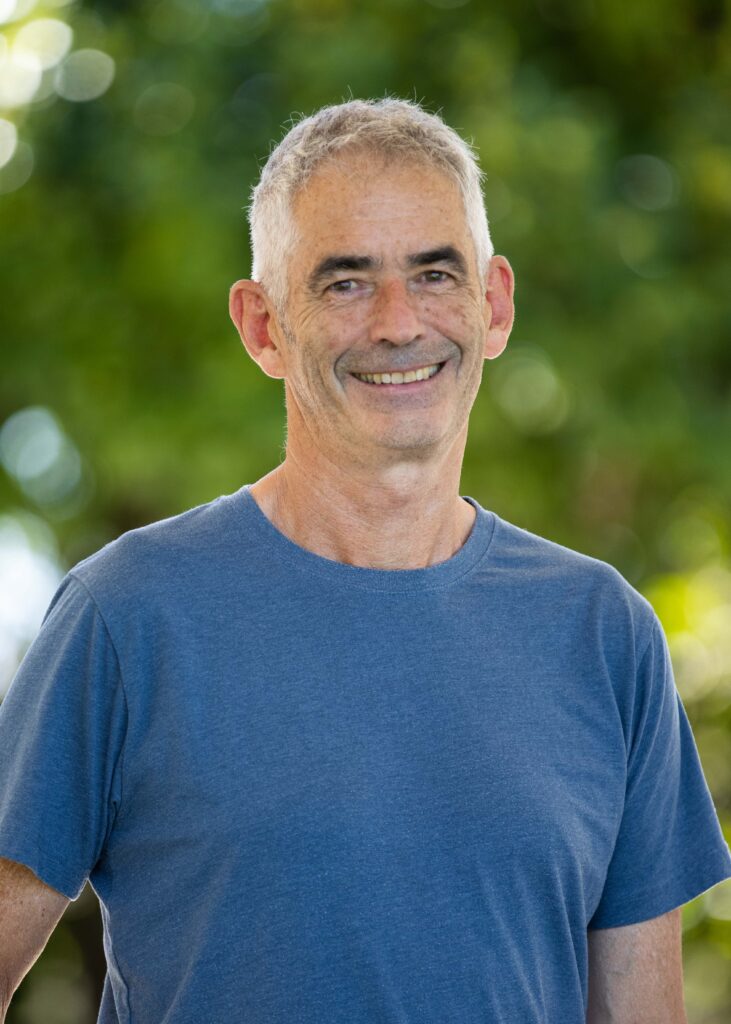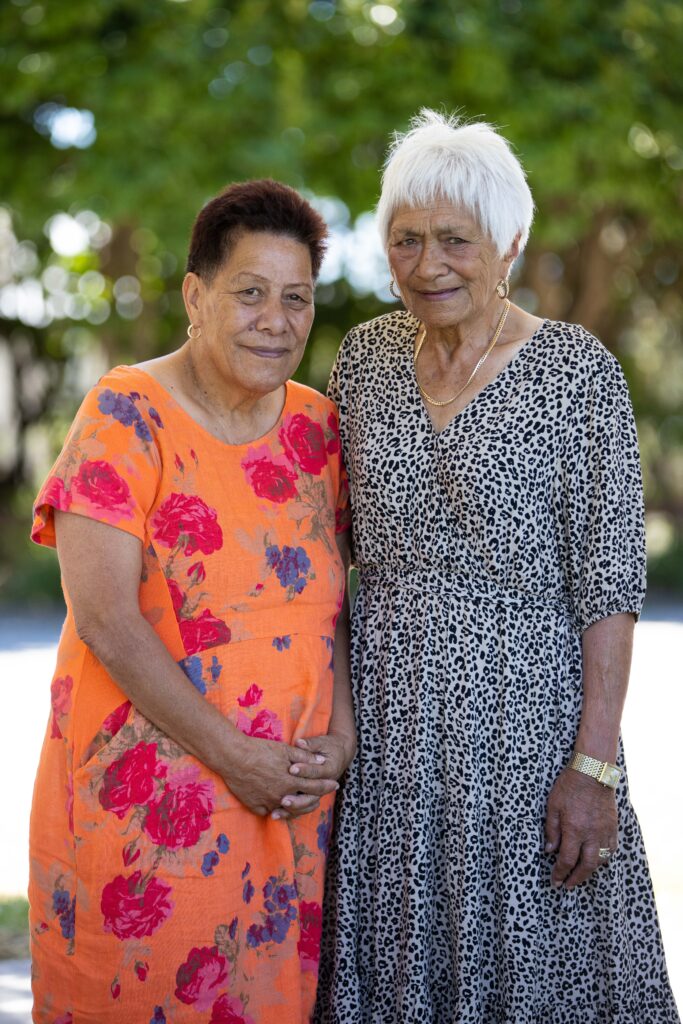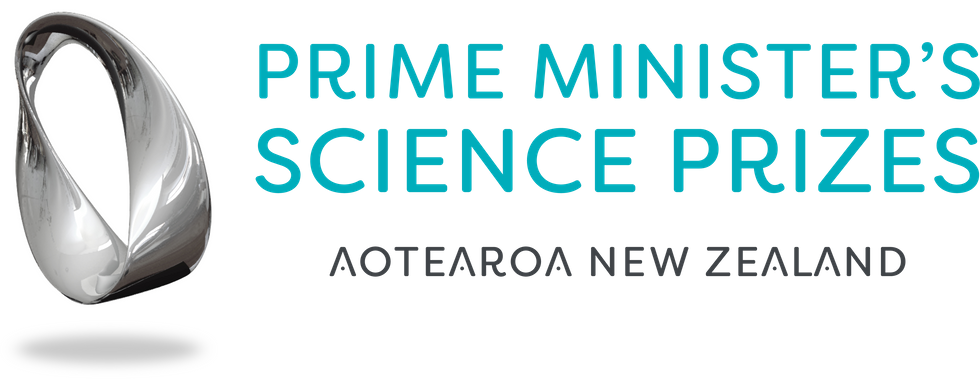2023 WINNER OF TE PUIAKI PŪTAIAO MATUA A TE PIRIMIA THE SCIENCE PRIZE
The Hereditary Diffuse Gastric Cancer team led by Professor Parry Guilford FRSNZ, University of Otago in conjunction with Kimihauora Health & Research Clinic, Tauranga has won the 2023 Prime Minister’s Science Prize for their research into hereditary diffuse gastric cancer.
Read media release about this prize.
A whānau-led research project that discovered the gene causing inherited stomach cancer has won Te Pūiaki Putaiao Matua a Te Pirimia, the Prime Minister’s Science Prize for 2023.
This prize is awarded for an innovative partnership between members of the McLeod whānau and their community, geneticists from the University of Otago, and clinicians from Tauranga Hospital, that began almost 30 years ago. Together they identified a genetic mutation (in the CDH1 gene) which was causing members of the McLeod whānau to die from stomach cancer at a young age. Their work led to the naming of a new cancer syndrome: Hereditary Diffuse Gastric Cancer. The researchers developed a genetic test which gives members of stomach cancer families from around the world the ability to understand their risk of cancer and take preventative action.

Prior to 1998, the outlook for families with suspected inherited stomach (gastric) cancer was grim. One in two were likely to die from the disease at a young age, with little that could be done to mitigate that risk. The challenges for healthcare providers were also daunting. Surveillance was largely impractical due to the difficulty in distinguishing families with a genuine inherited risk from chance cancer clusters. Within large families with an obvious inheritance pattern, there was no way to know who carried the pathogenic variant.
This disturbing situation has played out in thousands of families around the world. In Aotearoa, it is exemplified by the McLeod whānau (Ngāi Te Rangi, Ngāti Ranginui) from Tauranga Moana who lost 37 people to stomach cancer between the 1950’s and 1998 at a median age of 32yrs, with the youngest death in a 14yr old boy. The social cost to this whānau was also severe. The majority of family members were convinced their fate was inevitable and they were going to be the next to die. For generations, this fear and uncertainty had a severe impact on job stability, motivation, mental health, wellbeing, and personal relationships.
In 1995, under the guidance of Rangimarie McLeod, Maybelle McLeod, Hira McLeod and Pauline Harawira, Kimihauora Health and Research Clinic (based at Tamapahaore Marae), on behalf of the wider McLeod whānau, formed a research partnership with the Cancer Genetics Laboratory at the University of Otago, supported by clinicians at Tauranga Hospital. The aim of the partnership was to identify the genetic cause of the cancer, with the overall goal of developing genetic testing, surveillance protocols and medical interventions to manage the cancer risk in this whānau and, subsequently, other stomach cancer families around the world.

“Fortunately, the gene that we finally found, CDH1, was quite high on that list. So by using linkage analysis, followed by DNA sequencing, we were able to show that the gene CDH1 was the cause of cancer in this family,” says Parry. CDH1’s role was quickly validated in two other whānau affected by stomach cancer, and subsequently in many more families from Aotearoa New Zealand and around the world.
The team has played an active role in the international inherited cancer research community for many years now, work which has included leading the drafting of the current international Hereditary Diffuse Gastric Cancer clinical management guidelines.
Genetic testing is recommended at age 16, or younger in some cases. It is then advised that carriers of pathogenic CDH1 variants have an operation in their early to mid twenties to remove the stomach, at a time that fits in with schooling, university, work, and family obligations. For those not wishing to have surgery, annual endoscopic surveillance is recommended. For those who test positive, it’s important to the project team that they and their whānau members are well supported.
Project member, Associate Professor Karyn Paringatai found out in 2009 that she carries a CDH1 gene variant, and had a full gastrectomy (stomach removal) shortly afterwards. She gave a TEDx talk entitled ‘My whakapapa saved my life’, encouraging others to learn their whakapapa (genealogy). Supported by a research grant from the Marsden Fund, Karyn started to look more deeply at whānau experiences with the CDH1 gene: not only their clinical treatment, but also their interactions with and understanding of science.

The project continues to deliver transformative impact, with multiple strands, and remains whānau-led in many aspects. This enduring partnership began almost 30 years ago, and serves as an exemplar of how to meet a community’s needs and how to uphold cultural values and data sovereignty within healthcare research.
A conservative estimate of 400-450 lives have been saved in Aotearoa alone demonstrates the profound impact of this research on our society. This is not a nebulous estimate – as the team knows the majority of these 400-450 people. Also positively affected are the many hundreds of people from at-risk families who now know they don’t carry the gene – allowing them to move on with their lives without the constant fear of an early death. It is estimated that 27,000 people in Europe and the United States of America will have their lives saved over the next few years based on this research.
Hope has been restored in these families.
